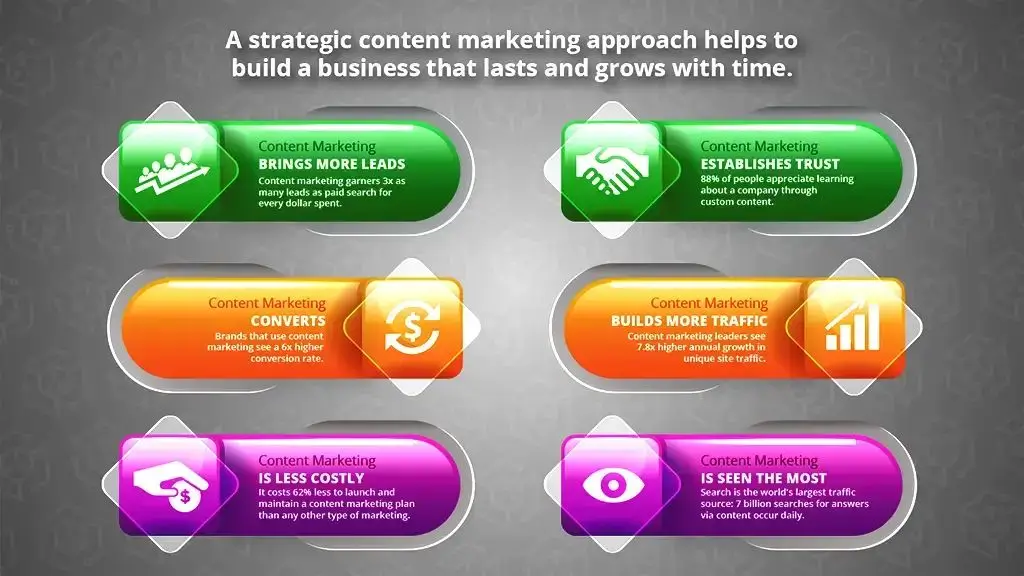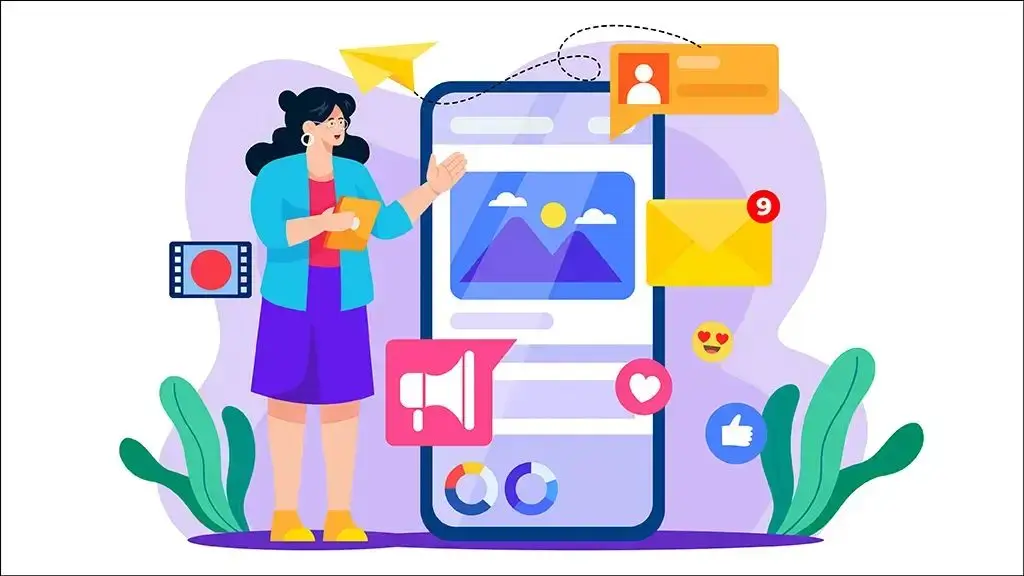Content Marketing Is Important For Your Business
By
Word Sorceror
Content marketing is like creating helpful and informative online content to attract customers. This could be articles, videos, social media posts, or anything else that provides value to your target audience.
A new study shows more and more people are constantly connected to the internet, especially through smartphones. This means buying habits are changing.
People research online before buying: Nearly 8 out of 10 people research products online before even contacting a company.
Shopping is moving online: Between 70% and 80% of shopping interactions now involve digital channels.
Businesses need a digital plan: With more people online and shopping habits changing, all businesses, big or small, need a digital marketing strategy.
This is especially important as more people work from home or in hybrid work environments. A strong digital presence is key to reaching customers today.
Why is Content Marketing Important?

Here are three key reasons for content marketing
Attract New Customers
People often research online before buying something. By creating great content, you can get your business noticed by potential customers who are looking for what you offer.
Keep Existing Customers Happy
Good content can educate your customers and answer their questions. This helps build trust and loyalty, making them more likely to stick with you.
Supports Your Overall Marketing Plan
Content marketing works well with other marketing efforts. It can help drive traffic to your website, improve search engine rankings, and ultimately increase sales.
Many businesses already do content marketing, and it's a smart investment. It's a way to reach customers where they are online and build long-term relationships with them.
9 Reasons Content Marketing Is Important For Your Business
Content marketing has evolved beyond brand awareness. It's a strategic approach to drive measurable results and fuel your sales funnel.
Here are 9 reasons why content marketing is highly essential for your business:

1. Content Captures High-Intent Leads
Move beyond vanity metrics. Target your content towards the later stages of the buyer's journey. Create in-depth product comparisons, case studies showcasing successful customer implementations, or free trials with clear value propositions. For example, a marketing automation platform could offer a free trial that allows users to experience the software's lead nurturing capabilities firsthand. This attracts potential customers who are actively considering a purchase and ready to convert.
2. Content Nurtures Leads Through the Funnel
Guide potential customers on their buying journey. Develop content that addresses specific pain points and objections at each stage. Offer educational blog posts for early-stage awareness, informative webinars for consideration, and free consultations for decision-making. A financial services company could create a series of blog posts on different retirement planning strategies, followed by a downloadable retirement calculator tool, and then personalized consultations with a financial advisor. This comprehensive content strategy educates, engages, and ultimately converts potential customers into paying clients.
3. Content Marketing Boosts Customer Lifetime Value (CLTV)
Don't just acquire customers, retain them. Prioritize content that educates existing customers on maximizing the value of your product or service. Offer "how-to" guides on advanced features, loyalty programs with exclusive content rewards, or customer appreciation events. A language learning app could create video tutorials on advanced grammar topics for premium subscribers, host online language exchange communities for active users, and organize cultural events for their loyal customer base. This fosters customer satisfaction, increases user engagement, and encourages repeat business.
4. Content Marketing Powers Paid Advertising Efforts
Amplify your reach and ROI. Leverage high-performing content pieces as landing pages for targeted ad campaigns. Utilize social media ads promoting valuable ebooks or gated content to capture leads. An e-commerce clothing store could use targeted ads on social media platforms, showcasing blog posts featuring their latest styles and driving traffic to their website for potential purchases. This integrated approach leverages the power of content to attract new customers through paid advertising channels.
5. Content Marketing Improves Search Engine Marketing (SEM)
Attract organic traffic and qualified leads. Develop content rich in relevant keywords and optimized for search engines. Create blog posts that answer common industry questions or target long-tail keywords with lower competition. A dental clinic could publish informative blog posts on different dental procedures, optimized with relevant keywords like "dental implant benefits" or "teeth whitening options." This improves search engine ranking and attracts organic traffic from potential patients searching for dental services.
6. Content Marketing Enables Data-Driven Optimization
Measure success and refine your strategy. Utilize website analytics tools to track content performance and identify high-converting content pieces. Analyze social media engagement metrics and adjust your content calendar based on audience preferences. A/B tests different headlines, formats, and calls to action for your content to optimize lead generation. This data-driven approach ensures your content marketing strategy delivers measurable results and drives continuous improvement.
7. Content Marketing Fosters Brand Advocacy
Turn customers into brand champions. Encourage user-generated content by creating engaging social media campaigns or hosting contests that incentivize customers to share their experiences. A sporting goods company could launch a social media campaign asking customers to share photos of themselves using their products outdoors, with the chance to win prizes. This fosters brand loyalty and encourages customers to become advocates for your brand.
8. Content Fuels Public Relations (PR)
Amplify your brand message. Leverage content like press releases, informative infographics, or impactful case studies to reach journalists and bloggers who might be interested in featuring your story. A sustainable packaging company could create a visually compelling infographic highlighting the environmental impact of their packaging solutions. This content can attract media attention and generate positive brand awareness.

9. Content Personalization Drives Conversions
Personalize your content experience. Recommend related blog posts, tailor email marketing campaigns based on past purchases, or offer interactive quizzes to suggest relevant products or services. An online shoe store could leverage user purchase history to recommend complementary accessories like socks, insoles, or shoe care products. This personalized approach feels more relevant to customers and increases the likelihood of conversion.



